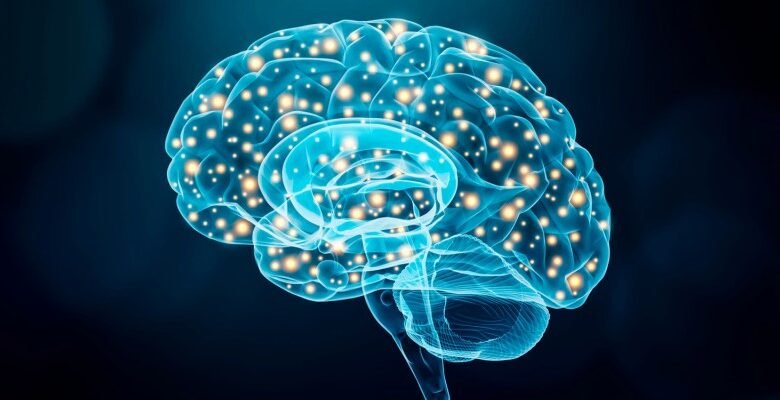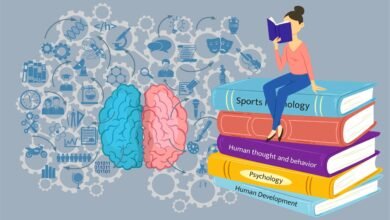Psychology: Decoding the Language of the Mind

In today’s world, the field of psychology serves as a gateway to understanding the intricacies of the human mind. Through the lens of psycholinguistics, psychologists and researchers delve deep into decoding the language of the mind, unraveling its complexities, and decoding its messages.
Introduction to Psychology
Psychology, the scientific study of behavior and mental processes, encompasses various branches that explore different facets of human cognition and behavior. Central to psychology is the exploration of the mind and its functions.
Understanding the Language of the Mind
What is Psychology?
Psychology seeks to understand the inner workings of the human mind, including thoughts, emotions, and behaviors. It delves into both conscious and unconscious processes to decipher the complexities of human behavior.
Importance of Decoding the Mind
Deciphering the language of the mind is crucial for gaining insights into human behavior, facilitating personal growth, and improving mental health outcomes.
Theories of Psychology
Freudian Theory
Sigmund Freud’s psychoanalytic theory emphasizes the role of unconscious conflicts in shaping behavior and personality.
Cognitive Theory
Cognitive psychology focuses on mental processes such as perception, memory, and problem-solving, highlighting the importance of cognitive processes in behavior.
Behavioral Theory
Behavioral psychology emphasizes observable behaviors and the impact of environmental factors on behavior.
Humanistic Theory
Humanistic psychology emphasizes the individual’s capacity for self-actualization and personal growth, highlighting the importance of subjective experiences and perceptions.
Language and Communication in Psychology
Verbal Communication
Verbal communication encompasses spoken and written language, serving as a primary means of expressing thoughts, emotions, and ideas.
Nonverbal Communication
Nonverbal communication, including body language and facial expressions, plays a significant role in conveying emotions and intentions.
How the Mind Processes Information
Perception
Perception involves the interpretation of sensory information, shaping how individuals perceive and interact with the world around them.
Memory
Memory processes involve encoding, storing, and retrieving information, influencing learning and decision-making.
Thinking and Problem Solving
Cognitive processes such as reasoning and problem-solving enable individuals to navigate complex situations and make informed decisions.
Emotions and Their Expression
Understanding Emotions
Psychologists study emotions to understand their underlying causes and effects on behavior and mental health.
Expressing Emotions
Emotional expression varies across individuals and cultures, influencing interpersonal relationships and communication.
Psychological Disorders and Their Language
Anxiety Disorders
Anxiety disorders involve excessive worry and fear, impacting individuals’ thoughts, emotions, and behaviors.
Mood Disorders
Mood disorders, such as depression and bipolar disorder, affect individuals’ emotional states and overall well-being.
Personality Disorders
Personality disorders involve enduring patterns of behavior, cognition, and emotion that deviate from cultural norms, causing distress and impairment.
Language Development in Psychology
Early Language Acquisition
Language acquisition begins in infancy and progresses through childhood, influenced by environmental and genetic factors.
Language Acquisition Theories
Psychologists propose various theories to explain how children acquire language, including behaviorist, nativist, and interactionist perspectives.
The Role of Language in Therapy
Cognitive Behavioral Therapy
Cognitive-behavioral therapy (CBT) helps individuals identify and change negative thought patterns and behaviors, promoting mental health and well-being.
Psychotherapy
Psychotherapy encompasses various therapeutic approaches aimed at addressing emotional, behavioral, and interpersonal challenges.
Cultural Influences on Psychological Language
Cultural Variations in Communication Styles
Cultural norms and values shape communication styles, influencing how individuals express thoughts, emotions, and beliefs.
Impact of Culture on Psychological Interpretations
Culture influences how psychological phenomena are perceived, diagnosed, and treated, highlighting the importance of cultural competence in psychology.
The Future of Psycholinguistics
Advances in Neuroscience
Advancements in neuroscience offer new insights into the neural mechanisms underlying language processing and comprehension.
Technological Innovations
Technological advancements, such as brain imaging techniques and natural language processing algorithms, enhance our understanding of psycholinguistic phenomena.
Case Studies: Deciphering Psychological Language
Case Study 1: Trauma and its Effects
Exploring the language of trauma provides insights into its psychological effects and treatment approaches.
Case Study 2: Language Development in Children
Studying language development in children sheds light on the cognitive processes involved and informs educational practices.
Ethical Considerations in Psycholinguistics
Confidentiality and Privacy
Maintaining confidentiality and privacy is essential in psycholinguistic research and therapy to protect individuals’ rights and dignity.
Informed Consent
Obtaining informed consent ensures that individuals understand the nature and purpose of psychological research and treatment.
The Interdisciplinary Nature of Psycholinguistics
Linguistics
Psycholinguistics draws upon linguistic theories and methodologies to study language processing and comprehension.
Neuroscience
Neuroscientific research elucidates the neural correlates of language and cognition, advancing our understanding of the mind-brain connection.
Sociology
Sociological perspectives offer insights into the social and cultural factors shaping language use and communication patterns.
Conclusion: Psychology Decoding the Language of the Mind
In conclusion, psycholinguistics offers a window into the language of the mind, revealing the intricate interplay between cognition, emotion, and behavior. By decoding psychological language, we gain deeper insights into human nature and pave the way for enhanced mental health and well-being.
Read More: Mind Matters: An In-Depth Look at Psychology
FAQs
What is psycholinguistics?
Psycholinguistics is the interdisciplinary field that studies the psychological and cognitive aspects of language, including how people acquire, comprehend, produce, and use language in communication.
How does culture influence language development?
Culture influences language development through social interactions, exposure to linguistic input, and cultural norms. Children learn language within the context of their culture, which shapes vocabulary, grammar, and communication styles.
What are some ethical considerations in psycholinguistic research?
Ethical considerations in psycholinguistic research include obtaining informed consent from participants, ensuring confidentiality and privacy of data, minimizing harm or discomfort, and maintaining integrity in data collection and reporting.
How do cognitive-behavioral therapies utilize language in treatment?
Cognitive-behavioral therapies (CBT) utilize language by helping individuals identify and challenge maladaptive thoughts and beliefs, reframe negative self-talk, and develop more adaptive coping strategies. Therapists use language to guide clients through cognitive restructuring and behavior modification techniques.
What role does neuroscience play in understanding psycholinguistic phenomena?
Neuroscience provides insights into the neural mechanisms underlying language processing, comprehension, and production. Neuroimaging techniques such as fMRI and EEG help researchers study brain regions involved in language functions, enhancing our understanding of how the brain processes linguistic information.
Read More: Strength of Psyche: Exploring the Depths of the Human Mind











